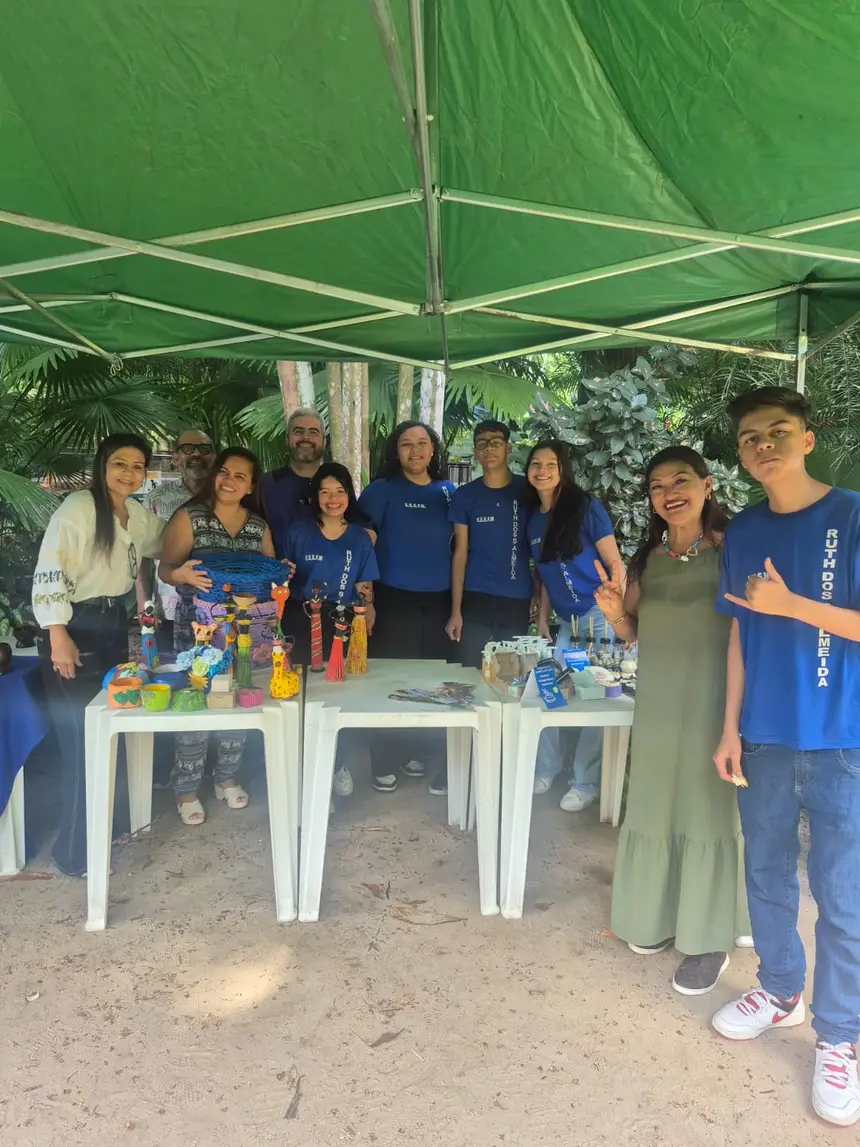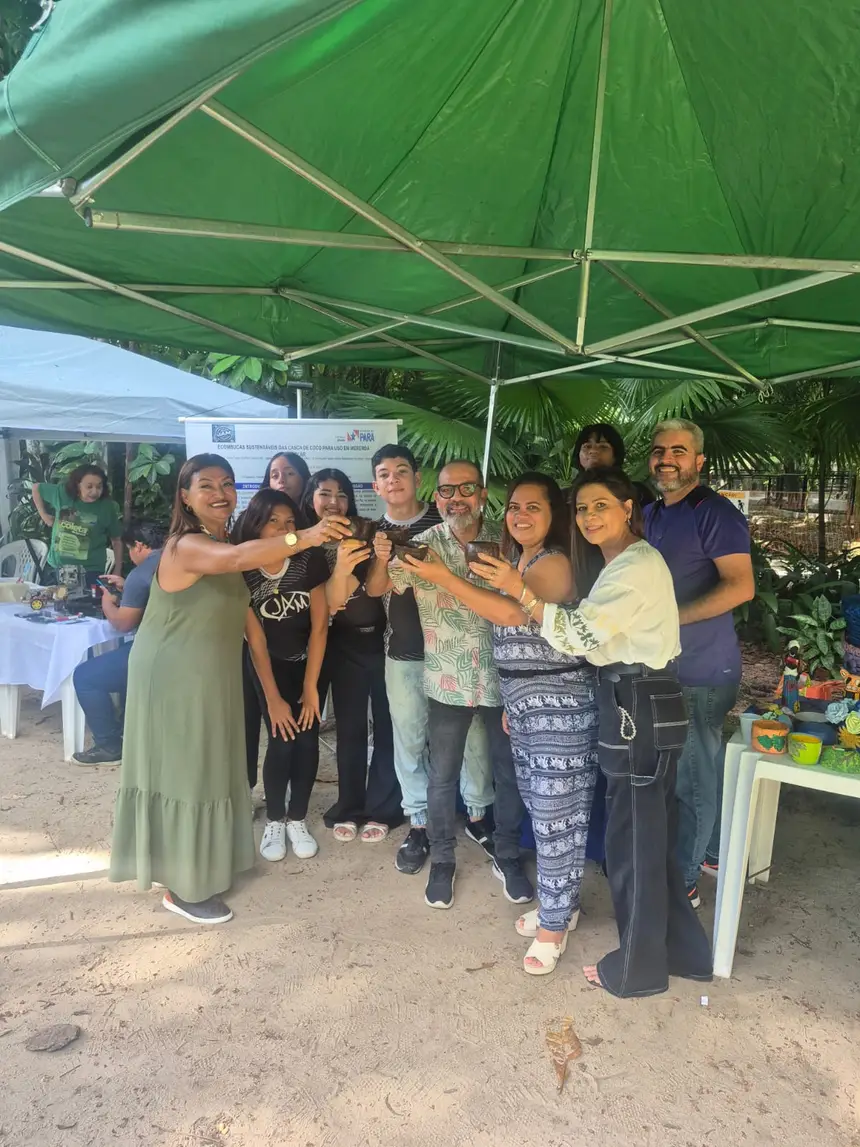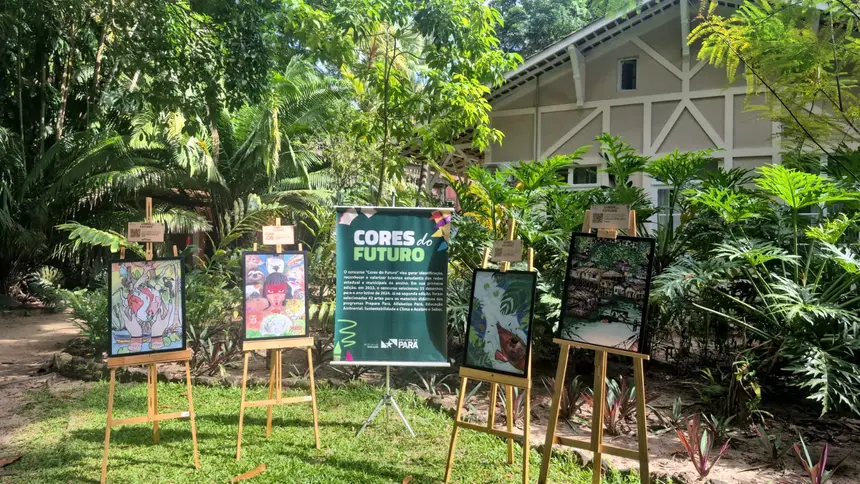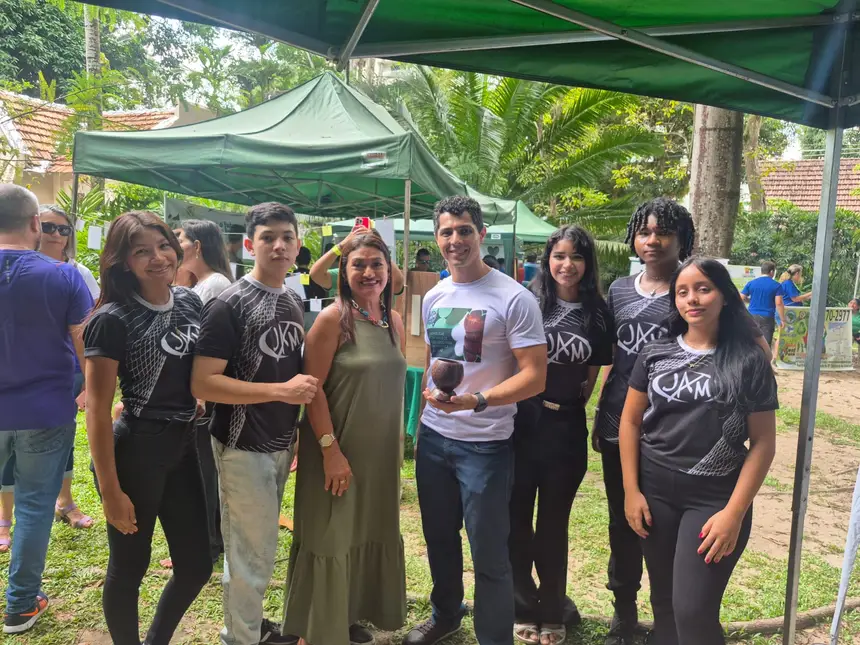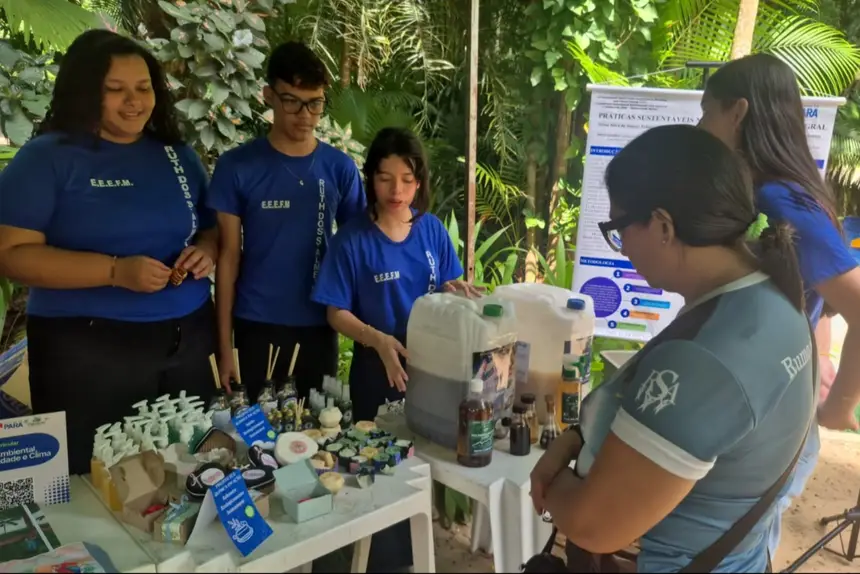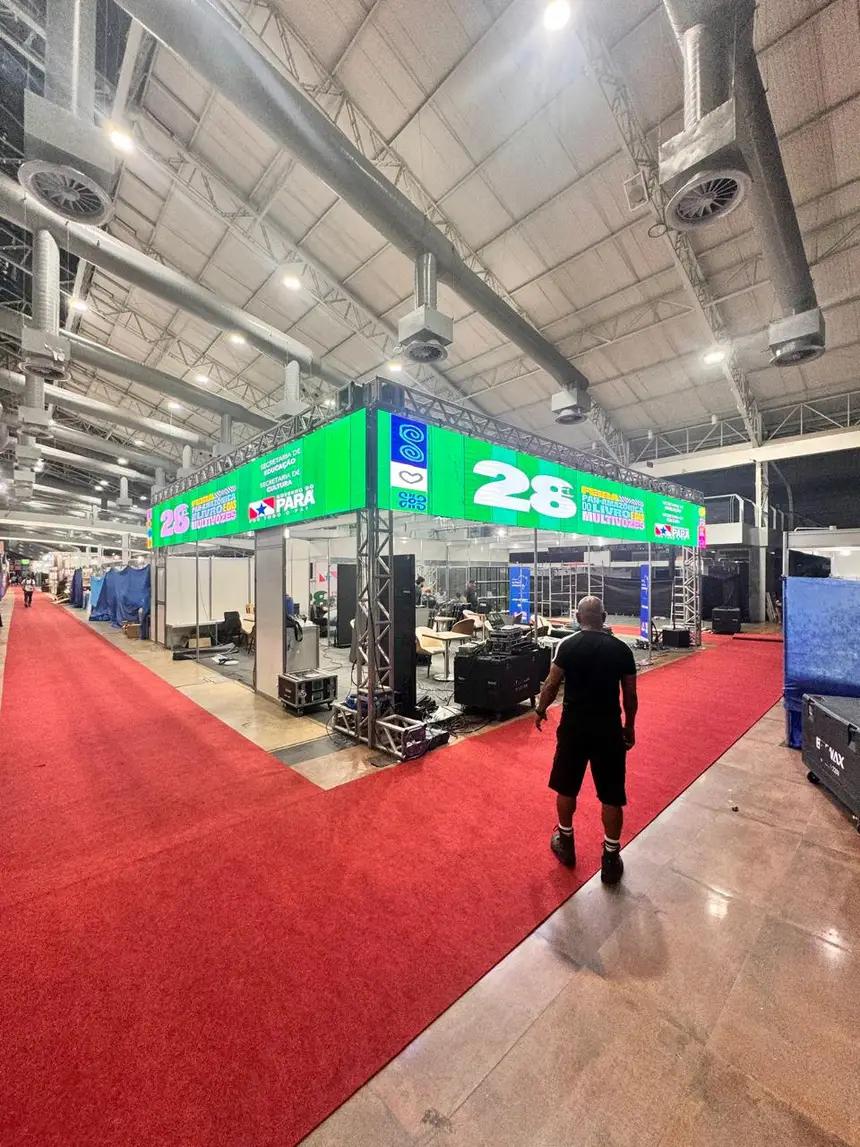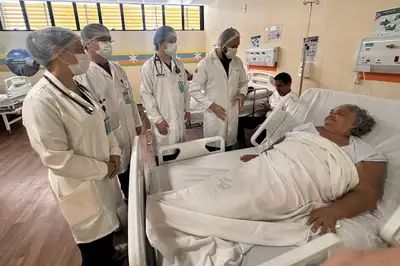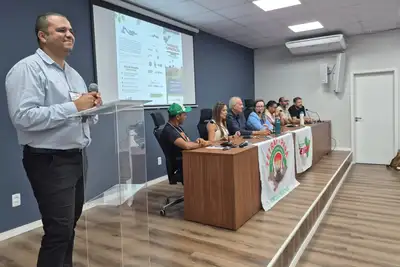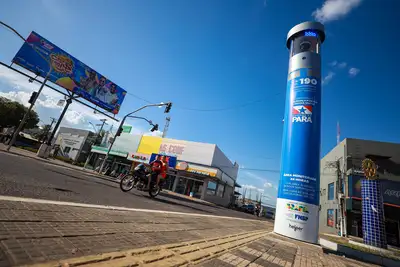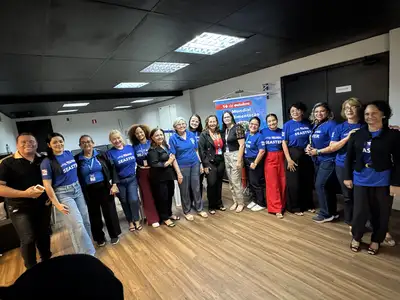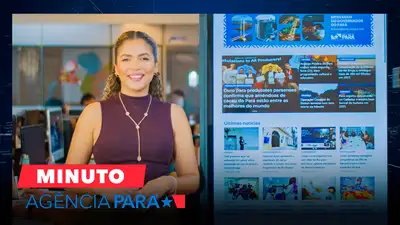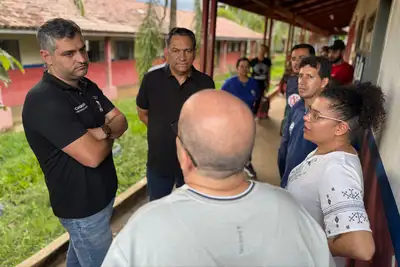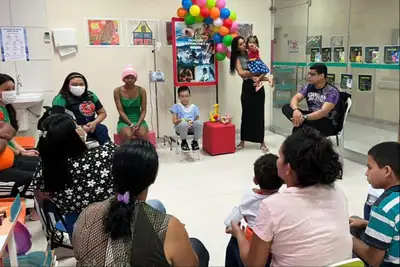Seduc students present environmental education projects at the Emílio Goeldi Museum
The program is part of the celebrations for the 130th anniversary of the zoobotanical park
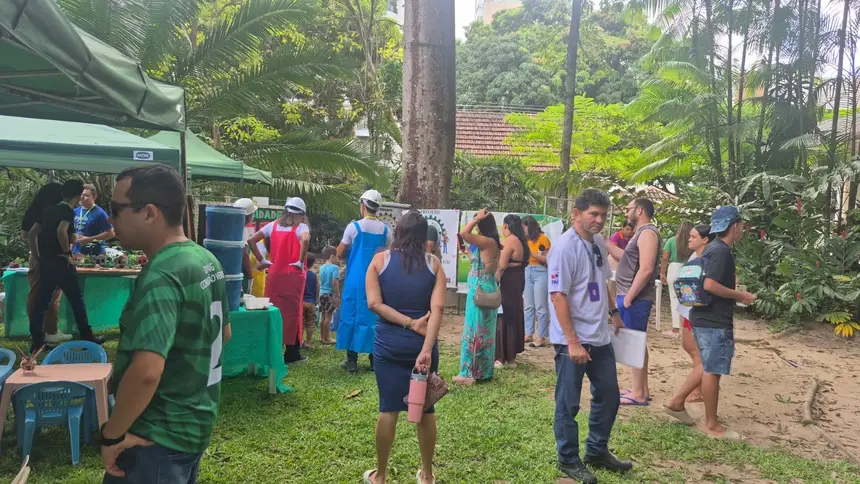
Students from the Pará state network are increasingly engaged in discussions about sustainability and the environment with projects and initiatives aimed at youth leadership both inside and outside the school environment. Therefore, the State Department of Education (Seduc) was invited to join the programming of actions dedicated to environmental education and Amazonian knowledge, organized by the Interinstitutional Commission for Environmental Education of Pará (Ciea/PA), in celebration of the 130th anniversary of the Emílio Goeldi Paraense Zoobotanical Museum, this Friday (15), in Belém.
A pioneer in ensuring a mandatory curricular component of Environmental Education, the Government of Pará, through Seduc, has been offering this component in all stages of education in schools since the first semester of 2024. Addressed transversally, the discussion on sustainability and climate involves students in projects, actions, and initiatives focused on youth leadership on the topic.
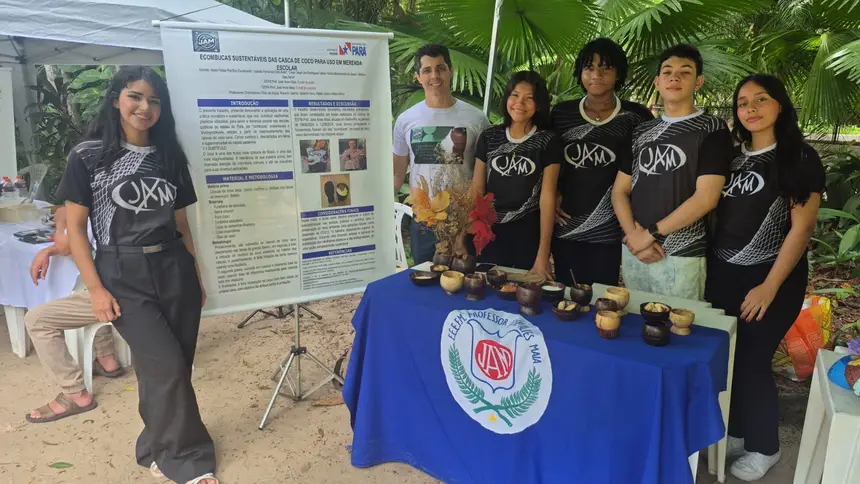
Two state schools exhibited developed projects. Students from the Ruth dos Santos Almeida State Full-Time School, located in Belém, presented initiatives such as the “Medicinal Garden,” “School Garden,” “Ecological Soap,” and “Economy in Action” with experiments and products produced by the students themselves.
Student Laila Cristine, from the 1st year of high school, explained how the projects work. “In composting, we make biodegradable defenses to protect the plants from small insects that can cause damage to them, such as aphids or scale insects. It is made from tobacco, oil, and alcohol, which are smells that these insects dislike, so it repels them. We also have our liquid fertilizer, which is made in our school composter, with the leachate that falls from it, made from our solid waste like eggshells, vegetable scraps, and fruit peels. The garden and the medicinal garden also contribute to other projects like the scent project, which includes candles and soap that use basil, mint, and green grass, which are our main fragrances for this project. The candles and soap are all made from our reused cooking oil that is filtered to remove any residues that might interfere,” she said.
Meanwhile, students from the José Alves Maia State School, located in the Telégrafo neighborhood in Belém, presented the “Ecombucas” project, an initiative that transforms coconut shells into cups and bowls. The project originated from the idea of reusing what would otherwise be discarded, giving new life to a material abundant in the region.
“Today, we brought the sustainable ecombucas project for the environment, made from dry coconut shells. We know that dry coconut shells are one of the most discarded products here in the markets of Belém, and this project aims to reuse these shells for transformation in order not to harm the environment. We are also aiming for partnerships with schools, especially public ones, which we know are the ones that most use plastic utensils so that, with this new project, we can reduce this usage and thus help preserve the environment,” stated student Isaias Felipe, from the 3rd year of high school.
Program - Seduc's participation, through the Coordination of Environmental Education (Ceam), is part of the “Interinstitutional Environmental Education Exhibition” of the Ciea/PA itinerant agenda, and included interactive exhibitions, educational dynamics, and dialogues about sustainable practices and the challenges of climate risks.
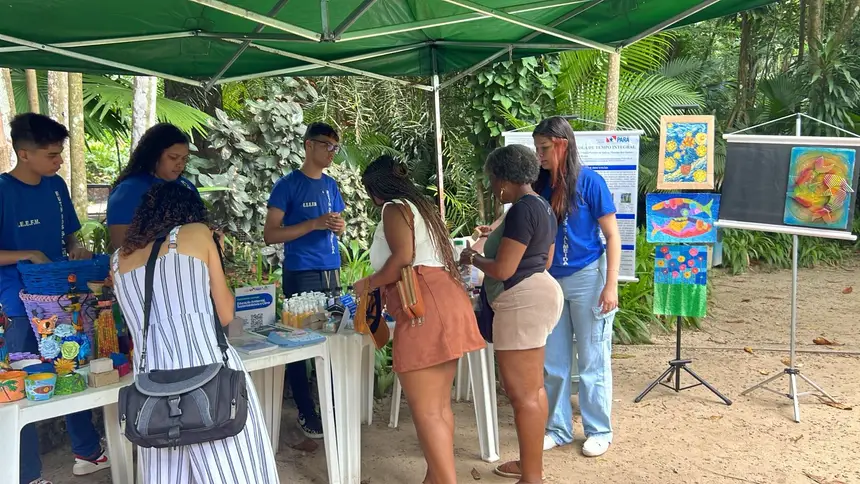
Eco-jewelry, plastic bricks, and biofertilizers; a photographic mural on the impact of plastic on aquatic ecosystems; storytelling and painting table; biodiversity table of the Amazon flora; home composter; selective collection game and performance with mascots; as well as a monitored trail and exchange of recyclables for seedlings were some of the activities carried out.
Environmental Education - The curricular component of Environmental Education, based on the Policy of Education for the Environment, Sustainability, and Climate, makes Pará stand out in ensuring a mandatory curricular component in the area of sustainability, encouraging the participation and engagement of students in discussions about fundamental agendas for Pará as the host of the United Nations (UN) Conference on Climate Change (COP 30), in November of this year, in Belém.



